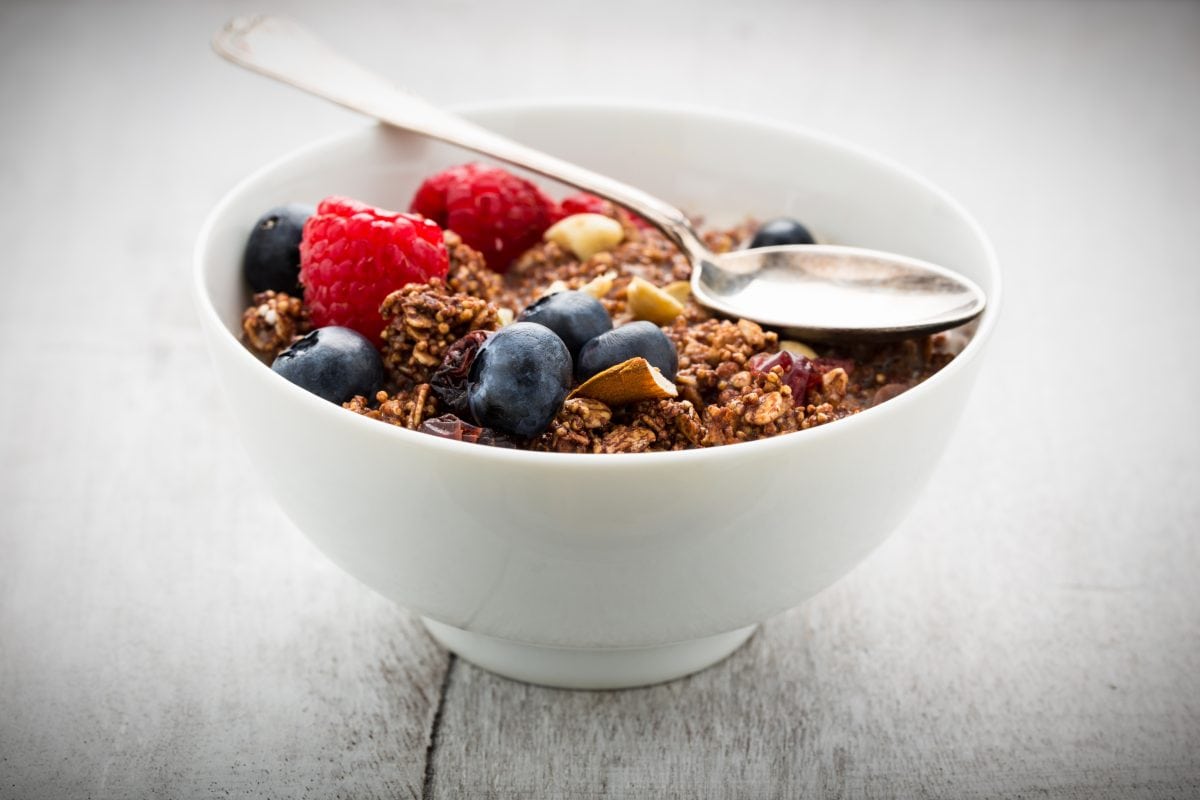The War Against Wheat
What’s at the base of your food pyramid? Is it whole grains? Have you ever stopped to ask why?
As we know, whole grains are the base of just about every “healthy” food pyramid. The American Heart Association recommends at least 3-5 servings of whole grains per day for optimal healthy nutrition. It’s simply accepted that whole grains are good for us.
So why are so many waging a war against whole grains?
Just look at the bestsellers on Amazon and you will find Wheat Belly, by Dr. William Davis, Grain Brain by Dr. David Perlmutter, plus a slew of books promoting low carb nutrition. Do they know something the AHA doesn’t?
It turns out, they just might.
It is time to start asking the questions, how do we know whole grains are healthy? What’s the evidence?
First, people living in Blue Zone communities (those where people routinely live the longest) eat vegetables fruits, nuts, seeds, legumes and whole grains. Since they routinely have better health than most other populations, that must mean whole grains are healthy, right?
Not so fast. People living in the Blue Zones also sleep 8 hours per night, they get regular physical activity, they have close social connections, they enjoy life and have a purpose for waking up every day, and they do not eat many sugars or processed junk food. Plus, they eat vegetables, fruits, nuts, seeds and legumes.
How could we possibly say the whole grains themselves are what keeps them healthy? Are they healthy because of the whole grains? Or does the rest of their healthy activities outweigh the unhealthy effects of the whole grains?
Luckily, we have studies that tried to answer that question.
Studies looking at replacing white flour with whole grains consistently showed health improvements in those easting whole grains. Easy answer. Whole grains must be healthy.
Again, not so fast. That only tells us that whole grains are healthier than processed white flour. That should not be a surprise. Said another way, they are less bad than white flour.
But are they healthy? Or are they necessary?
It turns out, grains are not necessary at all for health or for survival. You heard that right. Fats and proteins are considered essential nutrients. Our bodies cannot make all the fats and proteins we need, so we must eat them. That Is not the case for grains and carbs. Our bodies get all the fuel they need from converting fats and proteins to glucose or other fuel sources such as ketones.
OK. We have established that grains are not necessary. But do they add anything to a diet consisting only of fats and proteins?
Fiber. The whole grains that show the greatest health benefits, compared to white flour, are those with the highest fiber-to-carbohydrate ratio. That makes sense. Fiber is a key component to healthy eating, and whole grains can be a good source of fiber.
Lucky for us, we have a bounty of choices from where we can get our fiber. Vegetables, fruit, nuts, seeds and legumes are fantastic sources of fiber. If fiber is our goal, we once again see that grains are not necessary.
But are they harmful? Listening to William Davis, and reading his book Wheat Belly, will certainly convince you that they are.
For some, the answer is clear. If someone has celiac disease, or gluten sensitive enteropathy, the proteins in wheat cause an autoimmune reaction that attacks their intestinal lining. There is no question that they need to avoid wheat and grains.
What if someone does not have celiac disease? Some are still sensitive to gluten or other elements of grains (some studies show it may be other components of grains called the FODMAPs instead of the gluten). Although there is no clear diagnostic test for this, we can subjectively test it very simply. Go for 30 days without wheat and grains and see if you feel better. Do you have more energy? Do you feel less bloated? Less achy? Do you sleep better? Do you think more clearly? If the answer is yes, then you too should avoid wheat and grains.
So far, this should be pretty intuitive.
But what if you do not feel any better off grains? Is there still a reason to avoid them?
At this point we need to better define our enemy. Is gluten inherently evil for everyone?
No.
Well then, are FODMAPS inherently evil for all?
No.
Is there something that is evil for all?
Maybe.
It’s true that we do not all need to avoid gluten. In fact, gluten-free foods may be far worse for our health than gluten containing whole grains. A recent study suggested that low fiber, gluten free foods increased heart disease risk compared to higher fiber whole grains. Again, this proves whole grains are less bad than something really bad. That makes sense.
But wheat, grains and flour are not comprised of only gluten. They are a mix of carbohydrates and other grain proteins. And what do those carbohydrates do? Raise your blood glucose and insulin levels. “Healthy” whole grains have a glycemic index on par with a snickers bar!
Admittedly, glycemic index is not a perfect measure, but it is an accurate assessment of how quickly and strongly a food induces a glucose (and subsequently, an insulin) spike in your blood. For reference, white bread has a GI of 73, 100% Whole Grain Bread 51, Coca Cola 63, Snicker’s 51, oatmeal 55, cashews 22, broccoli 10, and cauliflower 10. Also for reference, spinach, salmon, beef, chicken and eggs have a GI of zero.
Do you see a pattern? Food that comes from wheat and grains, no matter how “Whole,” significantly raise our blood sugar and insulin. Real food, vegetables, meats, etc. do not.
Our bodies were never meant to eat grains or wheat. The agricultural revolution and production of wheat and grains has only existed for less than 0.1% of our evolution.
Some would argue that is enough for us to avoid them.
That’s not supported by evidence. But it does make sense (remember, this is an article on health, not about the economics of agricultural wheat production, government subsidies, worldwide famine or other issues outside larger than I care to tackle).
Again, the question comes back to, why are we eating them? Not because of physiological need. Not for health (as long as we can get fiber elsewhere).
We eat grains and wheat for taste, for convenience (since our society has evolved into a grain-centric society), and possibly for addiction (or at least a stimulated craving).
Health does not factor into the “Why.” If we believe Hippocrates who said, “Let food be thy medicine and medicine be thy food,” then our perspective of why we eat has to change. Everything we eat either helps our health, or hurts it. For that reason alone, I would argue that we should avoid wheat and most grains. I can’t defend it with solid research, but I can defend it with the often dangerous, “It makes sense.”
That’s enough for me. Is it for you?



